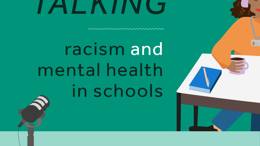School attendance and mental wellbeing
Guidance for school staff on supporting pupils with difficulties with mental wellbeing and school attendance.

Reduced or non-attendance at school by a child or young person is often rooted in emotional, mental health of wellbeing issues.
Some examples of non-attendance risk factors could include:
- anxiety, depression or other mental health concerns
- trauma
- being a young carer
- bullying
- having a special educational need or disability
This resource explores the risk factors for school non-attendance and looks at universal and targeted approaches that school staff can take to tackle the issue in their setting.
It also includes a case study exploring how schools can work with others to support children and young people experiencing challenges with non-attendance.
Using this resource
This resource is designed for:
- use by education staff in primary and secondary settings
- use by school leaders, senior mental health leads and classroom teachers
Share your feedback with us
How would you rate this resource? (1-5 from poor to excellent)
Thank you for your feedback
Your input helps us improve and maintain the quality of our resource hub.
Sorry there was an error
Please try again later.
Related resources

Talking racism and mental health in schools podcast
In this series of five podcast episodes, Cyra Neave, Senior Clinician at the Anna Freud Centre,...
View resource
Traumatic bereavement animation and resources
Resources to give school staff the knowledge and tools to give traumatically bereaved children and...
View resource
Reducing mental health stigma for school staff
A short guide for schools about how to reduce stigma around school staff asking for help with their...
View resource
Anti-racism and mental health resources: diversifying the curriculum
An instructional case study from a school who set up a working group looking at diversifying their...
View resource
 Author
Author
 Author
Author